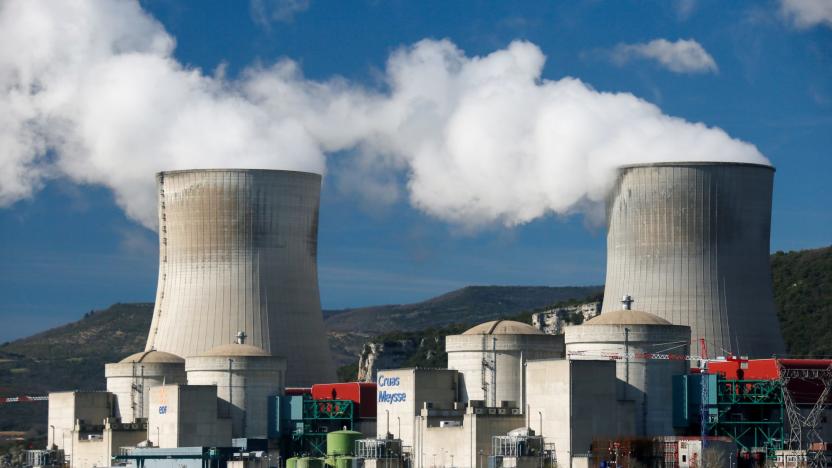nuclearwaste
Latest

Self-learning robots may soon inspect nuclear sites
Some jobs are simply too dangerous for humans. Near the top of that list is nuclear cleanup -- so to keep us mere homo sapiens safe, we're sending in robots. To help improve the bots' decision making skills, scientists at the University of Lincoln have won a grant to develop artificial intelligence systems for self-learning robots deployed at nuclear sites.

Diamonds convert nuclear waste into clean batteries
Nuclear waste is normally a major environmental headache, but it could soon be a source of clean energy. Scientists have developed a method of turning that waste into batteries using diamond. If you encapsulate short-range radioactive material in a human-made diamond, you can generate a small electrical charge even as you completely block harmful radiation. While the team used a nickel isotope for its tests, it ultimately expects to do this using the carbon isotope you find in graphite blocks from nuclear power plants.

France's ANDRA developing a million-year hard drive, we hope our badly-written blogs live in perpetuity
Us humans have been quick to embrace digital technology for preserving our memories, but we've forgotten that most of our storage won't last for more than a few decades; when a hard drive loses its magnetism or an optical disc rots, it's useless. French nuclear waste manager ANDRA wants to make sure that at least some information can survive even if humanity itself is gone -- a million or more years, to be exact. By using two fused disk platters made from sapphire with data written in a microscope-readable platinum, the agency hopes to have drives that will keep humming along short of a catastrophe. The current technology wouldn't hold reams of data -- about 80,000 minuscule pages' worth on two platters -- but it could be vital for ANDRA, which wants to warn successive generations (and species) of radioactivity that might last for eons. Even if the institution mostly has that pragmatic purpose in mind, though, it's acutely aware of the archeological role these €25,000 ($30,598) drives could serve once leaders settle on the final languages and below-ground locations at an unspecified point in the considerably nearer future. We're just crossing our fingers that our archived internet rants can survive when the inevitable bloody war wipes out humanity and the apes take over. [Image credit: SKB]

